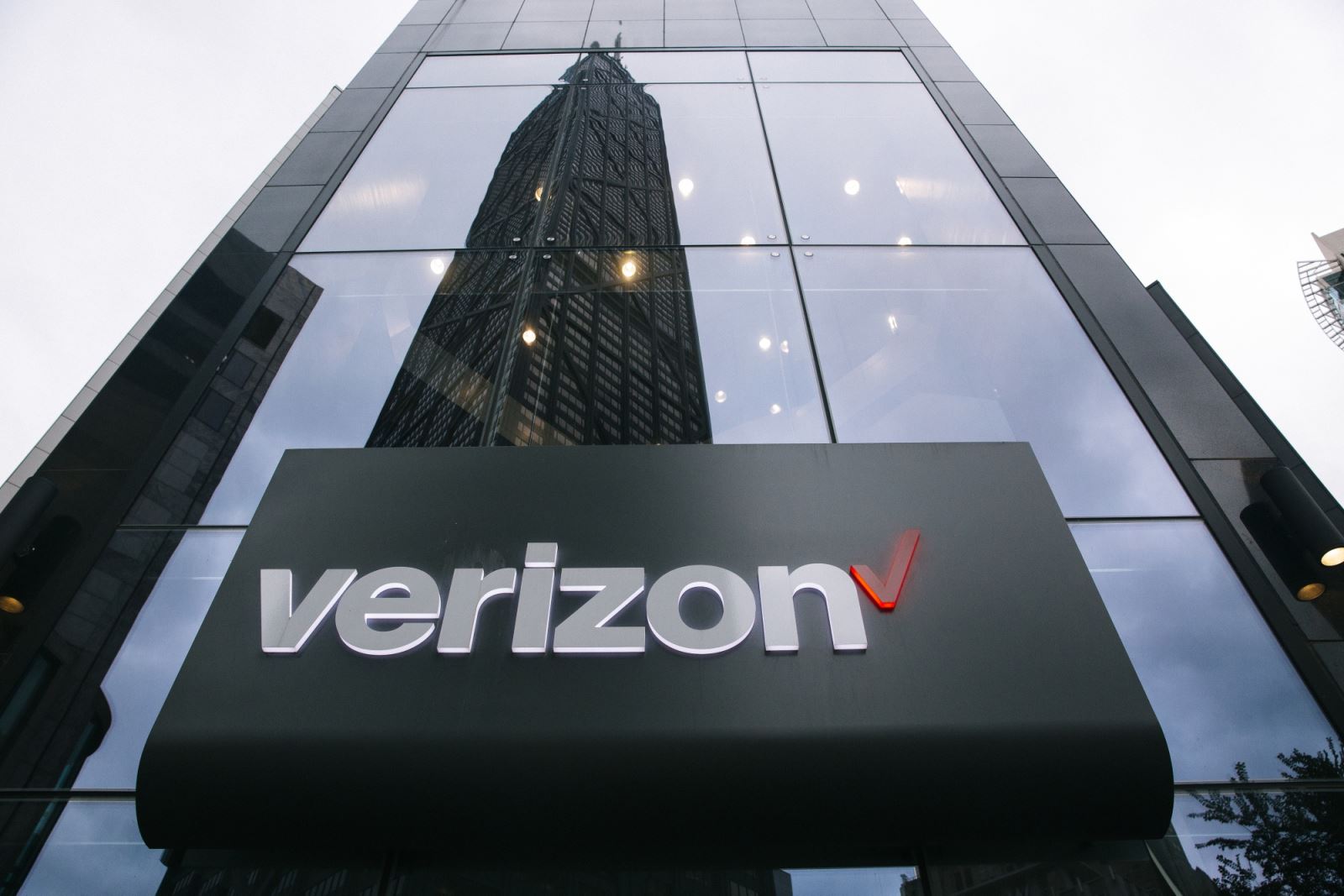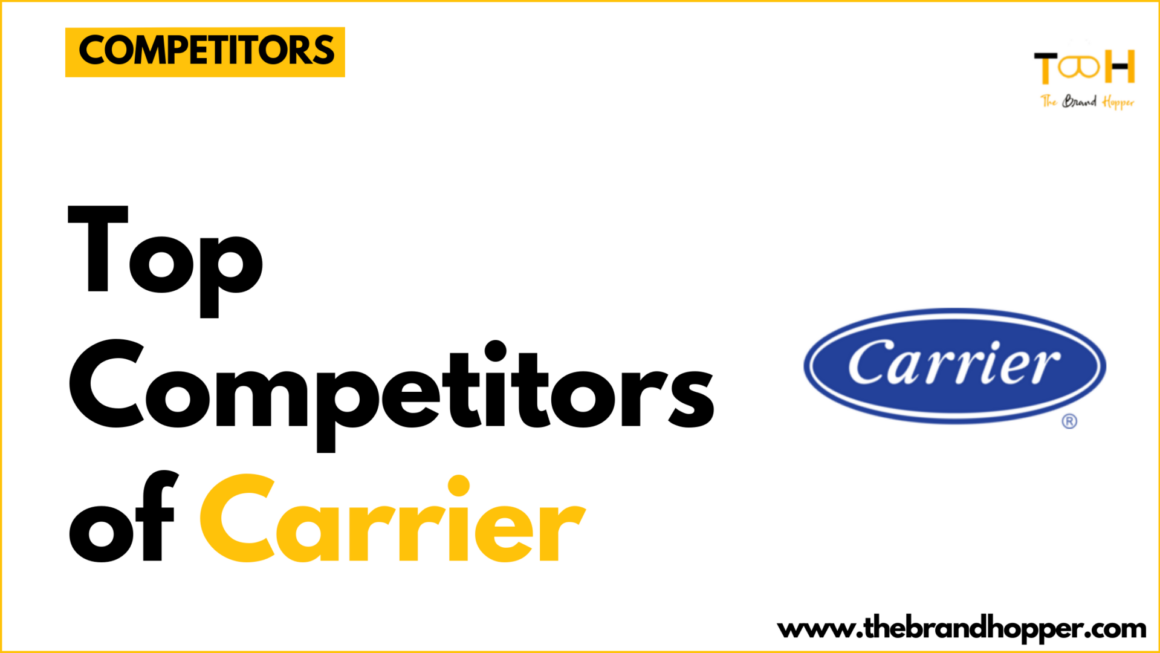Verizon Communications Inc. is an American multinational telecommunications conglomerate and a corporate component of the Dow Jones Industrial Average. The company is incorporated in Delaware, and headquartered at 1095 Avenue of the Americas in Midtown Manhattan, New York City.
Established on June 30, 2000, through the merger of Bell Atlantic and GTE, Verizon Communications emerged as a telecommunications powerhouse that quickly rose to prominence due to its relentless pursuit of cutting-edge solutions and customer-centric services. The company’s journey traces back to its roots in the American telegraph and telephone industry, embodying a rich history of technological advancements that have propelled society into an era of seamless connectivity.
Verizon’s products and services include:
- Wireless: Verizon Wireless is the second-largest wireless carrier in the United States, with over 143 million subscribers. It offers a variety of wireless plans and devices, including smartphones, tablets, and wearables.
- Wireline: Verizon offers a variety of wireline services, including landline phone, internet, and television. It also offers business-to-business services, such as cloud computing and data security.
- Internet: Verizon offers high-speed internet service over its fiber-optic network. It also offers mobile broadband and home Wi-Fi.
- Entertainment: Verizon offers a variety of entertainment services, including streaming video, music, and news.
Over the years, Verizon has consistently demonstrated an unwavering commitment to innovation. It was among the first to roll out 3G and 4G LTE networks, revolutionizing mobile data connectivity and paving the way for the modern mobile ecosystem. The company’s pioneering efforts in expanding network capabilities have been instrumental in enabling everything from video streaming and mobile applications to the Internet of Things (IoT) revolution.
Beyond its impressive infrastructure, Verizon’s impact extends to numerous facets of contemporary society. The company’s dedication to corporate responsibility and sustainability has led to initiatives addressing climate change, digital inclusion, and community support. Moreover, Verizon has continually pushed the boundaries of what’s possible in terms of telehealth, smart cities, and immersive experiences.
In 2021, Verizon generated revenues of $133.6 billion. It has over 120,000 employees and operates in 21 countries. Navigating the complex realm of modern telecommunications, Verizon Communications stands as a titan, setting the standard for connectivity and digital solutions.
However, in the ever-evolving landscape of the industry, Verizon is not alone. It shares this dynamic arena with a cohort of equally formidable competitors, each wielding their unique strengths and strategies to capture the attention and loyalty of consumers. From established industry players to disruptive innovators, the competitive landscape of telecommunications is a vibrant tapestry of companies vying for dominance in an interconnected world.
This article unveils the top competitors of Verizon Communications, shedding light on the diverse range of contenders that shape the telecommunications industry’s narrative of innovation, connectivity, and customer-centricity.
Top Competitors and Alternatives of Verizon Communications
1. AT&T

AT&T Inc. is an American telecommunications company with its main office at Whitacre Tower in Downtown Dallas, Texas. It’s the third-largest telecom company globally based on revenue and the biggest supplier of mobile phone services in the United States. In 2023, AT&T stood at the 13th spot in the Fortune 500 list of the biggest U.S. companies, with the revenue of $120.7 billion.
AT&T has etched its name in history as a pioneer that has shaped the very fabric of modern communication. Founded in 1877, AT&T has evolved from its roots in the telephone industry to become a leader in providing a comprehensive suite of communication and entertainment services. Its extensive offerings encompass wireless, broadband, television, and digital solutions, serving individuals, businesses, and governments alike.
Strengths of AT&T:
AT&T’s unparalleled strengths lie in its expansive network infrastructure, spanning wireless, fiber optics, and satellite communication. This vast network coverage not only ensures a reliable and widespread service but also positions the company as a frontrunner in the race toward the 5G revolution.
Moreover, AT&T’s diverse portfolio includes media assets acquired through acquisitions like WarnerMedia, enabling it to offer a unique blend of content and communication services. This integration of telecommunications and media endows the company with a competitive edge that combines cutting-edge connectivity with engaging entertainment experiences.
Competitive Advantage of AT&T:
AT&T’s competitive advantage rests on its ability to seamlessly integrate an array of services under one umbrella, providing customers with a holistic ecosystem that meets their communication, entertainment, and business needs. Its investments in 5G technology not only empower faster and more efficient connectivity but also set the stage for innovative applications across industries.
Additionally, the company’s strategic focus on content ownership and distribution grants AT&T the capacity to offer exclusive, value-added content to subscribers, differentiating its services from competitors. By effectively bridging the gap between connectivity and content, AT&T stands as a formidable contender in the telecommunications landscape.
2. T-Mobile

T-Mobile US, Inc. is an American wireless telecommunications carrier headquartered in Overland Park, Kansas, and Bellevue, Washington. It is the third-largest wireless carrier in the United States, with over 113.6 million subscribers as of Q4 2022.
T-Mobile was founded in 1994 as VoiceStream Wireless PCS. It was acquired by Deutsche Telekom in 2001 and renamed T-Mobile USA, Inc. in 2002. In 2013, T-Mobile and MetroPCS merged to form the current T-Mobile US, Inc.
T-Mobile offers a variety of wireless services, including postpaid, prepaid, and business plans. It also offers a variety of devices, including smartphones, tablets, and wearables. The company is known for its low prices and its focus on customer service. The company has been ranked as the best wireless carrier in customer satisfaction by J.D. Power for several years.
T-Mobile is also a leader in the development of new wireless technologies, such as 5G. The company has been investing heavily in 5G and expects to have a nationwide 5G network by the end of 2023.
Strength of T-Mobile:
T-Mobile’s key strength lies in its customer-centric approach, disrupting traditional telecom practices by eliminating contracts, introducing transparent pricing, and pioneering user-friendly plans. This strategy has resonated with consumers, fostering brand loyalty and expanding its customer base. Moreover, T-Mobile’s robust network expansion and modernization efforts, exemplified by its advanced 5G rollout, have solidified its position as a leader in wireless coverage and connectivity.
Competitive Advantage of T-Mobile:
T-Mobile’s competitive advantage stems from its “Un-carrier” strategy, which sets it apart by prioritizing simplicity, flexibility, and value for customers. The successful merger with Sprint has further strengthened its market presence, enhancing network capabilities and expediting 5G expansion. T-Mobile’s unique approach to business and commitment to innovation position it as a major disruptor, enabling the company to challenge industry norms and establish a distinct brand identity.
3. Vodafone
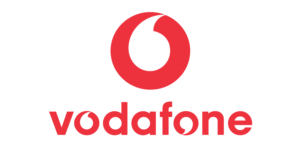
Vodafone Group Plc is a British multinational telecommunications company headquartered in Newbury, Berkshire, England. It is one of the world’s largest telecommunications companies, with operations in over 200 countries and territories.
Vodafone was founded in 1984 as Racal-Vodafone. It was renamed Vodafone Group Plc in 1991. The company’s name comes from the word “voice”, and its logo is a stylized bird.
Vodafone offers a variety of telecommunications services, including mobile telephony, fixed-line telephony, broadband internet, and television. The company also offers a variety of business services, such as cloud computing and data center services.
Strength of Vodafone:
Vodafone’s significant strength lies in its global presence and expansive network reach. Operating in numerous countries across Europe, Asia, Africa, and Oceania, the company has established a formidable international footprint.
This widespread network coverage enables Vodafone to offer seamless communication services to a diverse and vast customer base, contributing to its prominence as a leading telecommunications provider on a global scale.
Competitive Advantage of Vodafone:
Vodafone’s competitive advantage stems from its ability to leverage its global reach to provide integrated and consistent services across various regions.
The company’s cross-market expertise allows it to offer bundled services, unified billing, and shared infrastructure, enhancing customer convenience and engagement.
Additionally, Vodafone’s commitment to innovation, evident in its 5G deployments and IoT solutions, positions it at the forefront of technological advancements, enabling it to offer cutting-edge services that resonate with modern consumer demands.
4. KORE Wireless
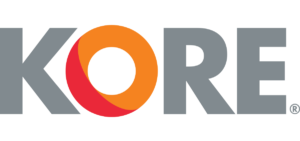
KORE Wireless is a global provider of wireless solutions for the Internet of Things (IoT). It offers a variety of services, including cellular connectivity, device management, and data analytics. KORE Wireless’ customers include a wide range of industries, such as manufacturing, logistics, and healthcare.
KORE Wireless was founded in 2004 and is headquartered in Atlanta, Georgia. The company has over 1,000 employees and operates in over 100 countries.
Strength of KORE Wireless:
KORE Wireless’s strength lies in its specialization in providing comprehensive Internet of Things (IoT) solutions. With a deep focus on IoT connectivity, management, and application enablement, the company has developed expertise that positions it as a go-to partner for businesses seeking to navigate the complexities of IoT deployment.
KORE’s in-depth knowledge of IoT technologies and its dedicated approach to solving IoT-related challenges strengthen its ability to cater to a wide range of industries.
Competitive Advantage of KORE Wireless:
KORE Wireless’s competitive advantage arises from its niche focus on IoT services and its end-to-end approach. By offering a seamless ecosystem that covers IoT connectivity, device management, and data analytics, KORE empowers businesses to harness the potential of IoT without grappling with fragmented solutions.
The company’s experience in handling the intricacies of IoT networks and its commitment to innovation, evident in its solutions like eSIM and secure connectivity, position it as a leader in delivering comprehensive IoT solutions that address industry-specific needs.
5. Airtel

Airtel is an Indian multinational telecommunications company with operations in 18 countries across South Asia and Africa. It is the largest mobile network operator in India and the second largest mobile network operator in Africa.
Airtel was founded in 1995 as a joint venture between the Aditya Birla Group and the Tata Group. The company’s name is a combination of the words “air” and “tel”, which means “air telephone” in Hindi.
Airtel offers a variety of telecommunications services, including mobile telephony, fixed-line telephony, broadband internet, and television. The company also offers a variety of business services, such as cloud computing and data center services.
Airtel is a major player in the telecommunications industry. It is committed to providing its customers with the best possible telecommunications experience
Strength of Airtel:
Airtel’s significant strength lies in its extensive network coverage and market leadership in multiple countries. With a presence in over 18 countries across Africa and Asia, Airtel has established a vast and reliable network infrastructure.
This widespread network reach enables the company to offer a range of communication services, including mobile, broadband, and digital solutions, to a diverse customer base.
Competitive Advantage of Airtel:
Airtel’s competitive advantage stems from its ability to adapt and innovate in dynamic markets. The company’s commitment to providing affordable and accessible services resonates with a wide audience, fostering customer loyalty.
Airtel’s efforts to expand its 4G and 5G networks, coupled with its investments in digital payment and content platforms, position it as a leader in delivering modern communication and entertainment solutions.
Additionally, Airtel’s experience in diverse markets allows it to navigate regulatory complexities and cater to specific regional needs, providing a distinct edge in the telecommunications landscape.
6. Millicom International Cellular

Millicom International Cellular (MIC) is a Luxembourg-based multinational telecommunications company with operations in 20 countries in Latin America and Africa operating under TIGO brand. It is one of the largest mobile network operators in the developing world.
MIC was founded in 1990 as Millicom Mobile. The company’s name is a combination of the words “million” and “communication”.
MIC offers a variety of telecommunications services, including mobile telephony, fixed-line telephony, broadband internet, and television. The company also offers a variety of business services, such as cloud computing and data center services.
MIC is a major player in the telecommunications industry in the developing world. It is committed to providing its customers with the best possible telecommunications experience.
Strength of Millicom International Cellular:
Millicom International Cellular’s strength lies in its focus on serving emerging markets with a combination of telecommunications and digital services. The company’s expertise in providing tailored solutions to countries with unique economic and infrastructural challenges positions it as a significant player in these regions. Millicom’s commitment to connectivity in underserved areas contributes to its positive impact on local communities and economies.
Competitive Advantage of Millicom International Cellular:
Millicom’s competitive advantage stems from its deep understanding of the dynamics of emerging markets, allowing it to adapt its offerings to meet specific local needs. The company’s emphasis on digital solutions, mobile money services, and partnerships with local businesses strengthens its position as a provider of holistic services that go beyond traditional telecommunications. By combining connectivity with financial inclusion and digital empowerment, Millicom creates a distinctive value proposition that resonates with the diverse populations it serves.
7. TELUS Communications Inc.
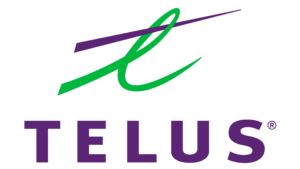
Telus Communications Inc. (TCI) is the primary subsidiary of Telus Corporation, a well-known Canadian telecommunications company. Telus offers a wide range of services, including internet access, voice communication, entertainment, healthcare, video content, smart home automation, and IPTV television. While originally based in Edmonton, Alberta, the company is now headquartered in the Vancouver, British Columbia area following its merger with BC Tel in 1999.
Telus Mobility, its wireless division, provides mobile phone networks based on UMTS and LTE technologies. Telus is the leading local exchange carrier in British Columbia and Alberta and competes with Shaw Communications, Rogers Communications, and Bell Canada in both the landline and mobile sectors. Notably, Telus is affiliated with the British Columbia Technology Industry Association.
Strength of Telus Communications Inc.:
Telus Communications Inc. boasts a strong position as a prominent Canadian telecommunications company with a comprehensive service portfolio. Its diverse offerings, ranging from internet access and voice communication to entertainment, healthcare, and smart home automation, underline its versatility in meeting modern communication needs. The company’s merger with BC Tel in 1999 further solidified its presence, positioning it as a leader in the telecommunications landscape, particularly in British Columbia and Alberta.
Competitive Advantage of Telus Communications Inc.:
Telus Communications Inc.’s competitive advantage lies in its wide-ranging services and commitment to innovation. Its wireless division, Telus Mobility, offers advanced mobile networks, while its diverse offerings address diverse customer demands. The company’s strategic position as the incumbent local exchange carrier in key provinces, coupled with its ability to compete with major industry players, such as Shaw Communications, Rogers Communications, and Bell Canada, signifies its resilience and relevance in the competitive market. Telus’ affiliation with the British Columbia Technology Industry Association further enhances its stature as a forward-looking industry player.
8. Rogers Communications Inc.
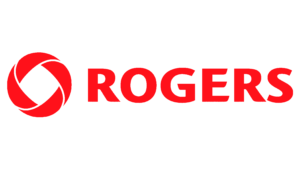
Rogers Communications Inc. is a well-established Canadian telecommunications company that specializes in communication and media services. Its main areas of operation include wireless communications, cable television, telephony, and internet services, alongside other significant telecommunications and mass media assets.
The company is headquartered in Toronto, Ontario. Its roots can be traced back to 1914, when Edward S. Rogers Sr. established the Rogers Vacuum Tube Company to sell battery-less radios. However, the current iteration of the company began in 1960 when Ted Rogers and a partner acquired the CHFI-FM radio station. They later became part-owners of a group that established the CFTO television station.
Strength of Rogers Communications Inc.:
Rogers Communications Inc. holds a position of strength as a leading Canadian telecommunications company with a rich legacy and a comprehensive suite of services. Its extensive network infrastructure and widespread coverage empower seamless connectivity across various regions. The company’s diverse offerings encompass wireless, cable, internet, and media services, highlighting its ability to cater to diverse communication needs.
Competitive Advantage of Rogers Communications Inc.:
Rogers Communications Inc. enjoys a competitive advantage through its integrated approach to telecommunications and media. Its ownership of media assets, including television networks and sports franchises, allows the company to offer unique content and entertainment experiences to its customers. This strategic convergence of telecommunications and media amplifies its offerings, setting it apart in a crowded market. Moreover, Rogers’ commitment to investing in network technology, including 5G deployments, enhances its competitive edge in delivering cutting-edge connectivity solutions. This holistic approach, coupled with its expansive network reach, reinforces its position as a formidable player in the telecommunications landscape.
9. GoTo

GoTo, previously known as LogMeIn Inc., is a provider of software as a service (SaaS) and cloud-based tools designed for remote work collaboration and IT management. Its range of offerings includes products like GoTo Connect, GoTo Resolve, Rescue, Central, and more. These solutions cater to the needs of small and midsize business IT departments while also delivering robust capabilities suitable for larger enterprises.
The company, founded in 2003 and headquartered in Boston, Massachusetts, underwent a rebranding in February 2022, changing its name from LogMeIn to GoTo. Alongside this rebranding, the company streamlined its product offerings to include a single application and two flagship products: GoTo Resolve for IT management and GoTo Connect for collaboration.
In December 2019, LogMeIn announced a purchase agreement for $4.3 billion by Francisco Partners and Evergreen Coast Capital Corp., an affiliate of Elliott Management Corporation. This deal was successfully finalized on August 31, 2020.
Strength of GoToConnect:
GoToConnect, a flagship product by GoTo, possesses remarkable strength in offering a unified communication and collaboration platform. Its seamless integration of voice, video, and messaging tools empowers teams to connect and communicate effectively, regardless of their location. This comprehensive approach enhances productivity, streamlines communication, and supports remote work, making it a valuable solution for modern businesses.
Competitive Advantage of GoToConnect:
The competitive advantage of GoToConnect lies in its holistic approach to communication and collaboration. By consolidating multiple communication tools into a single platform, it simplifies workflows and reduces the need for juggling multiple applications. This streamlined experience translates into improved efficiency and enhanced user experiences. Furthermore, GoToConnect’s ability to cater to both small and midsize businesses, as well as enterprises, showcases its adaptability and scalability, making it an appealing choice for a wide range of organizations.
In the ever-evolving landscape of telecommunications, the competitors of Verizon Communications stand as a testament to the dynamism and innovation that shape the industry. As we conclude this examination of Verizon’s challengers, it’s evident that the telecommunications sector is far from monolithic; instead, it is a constellation of companies, each with its unique strengths and strategies.
These competitors, whether through global reach, customer-centric approaches, or cutting-edge technology, collectively contribute to the advancement of connectivity, communication, and digital solutions. With Verizon’s continuous pursuit of excellence and its rivals’ persistent drive to innovate, the future of telecommunications promises to be marked by ongoing transformation and exciting possibilities for consumers worldwide.
Also Read: Top 10 Competitors and Alternatives of Duke Energy
To read more content like this, subscribe to our newsletter

